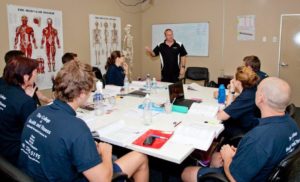Choosing your further education is never a decision that should be rushed. For those that want to work in health and fitness as an instructor, personal trainer, or specialist trainer, you need to make sure that you’re as prepared for the career path ahead of you.
The ideal fitness course needs to tick a wide range of boxes.
From career plans to budget to experience you might already have, there are plenty of factors to take into account. Here, we’re going to take a closer look at what you should consider when choosing a fitness course, and how to make sure that the course is going to provide the kind of education it promises.

Have a career goal in mind
Where do you see yourself working? This is the first question you should ask yourself, but the answer may not be immediately clear. There’s a straightforward progression to fitness courses, each one allowing you to pursue a wide variety of careers.
If you want to develop exercise plans, work in gyms, and teach fitness classes, then a Certificate III in Fitness is the essential first building block for a fitness career. Those who are more interested in becoming a personal trainer or running their own business might be inclined to choose a Certificate IV. Lastly, those who want to take on specialist work, such as working with medical professionals, rehabilitating injuries, or taking on managerial roles may want to consider the Diploma in Fitness.
Make sure the certification is worth it
If you’re taking a fitness course for the sake of starting a career, then you need to make sure that the certification you get is worth the paper that it’s printed on. There are plenty of fitness career development courses that may not offer you the qualifications you need to start working as a professional instructor or personal trainer, but still have plenty of useful information and skills to teach.
Those looking to start building a real career, however, need to make sure that they come away with the certificate. Most health and fitness professionals will have one or more of the three specific qualifications widely accepted by gyms and other fitness employers. These are the Certificate III in Fitness, the Certificate IV in Fitness, and a Diploma in Fitness. As mentioned, how far you want to advance your career should dictate which of the three you want to go for.
If you have no experience in the industry, you have to find a starting point
Whether you have an end career goal in mind or you simply want to get started on your career, there is one starting point that everyone in the fitness industry sets off from. If you have zero practical experience in the industry and you need to make that first step, the Certificate III might be the best option for you.
This course opens up the ability to start working in a gym, leading group fitness classes, and aqua aerobics classes, offering all the education you need to find your first step in your career. The Certificate III mostly covers a wide range of exercise methods, refreshing the fundamentals of fitness, and helping you understand fully the impact that these different workouts can have on the body.
Getting certified to work as a personal trainer
For more in-depth fitness work, such as becoming a fully qualified personal trainer, a Certificate IV in fitness provides the next level to your fitness education. This is for those who already have their Certificate III and perhaps some experience in the health and fitness industry. Without the Certificate III in fitness, a Certificate IV may not be as effective in helping you create the career you want. There are combined courses offering both, too, so those aiming to become personal trainers can get the comprehensive education they need.
The Certificate IV in fitness brings a more technical side to the education you might have already received from your Certificate III. It can allow you to work with specialist groups, to craft one-on-one training plans, and provide services like postural assessment and corrective exercise. What’s more, a Certificate IV education also offers some practical education on starting and running your own fitness business.
Moving on to speciality work
The Diploma of Fitness is not a course that you should aim to take as soon as possible. Rather, it’s for those who already have both their Certificate III and Certificate IV in Fitness. It also requires you to have real working experience in the industry for over a year. A Diploma in Fitness teaches you in a whole range of subjects such as advanced personal training, advanced exercise programs, and injury prevention strategies.
A Diploma in Fitness focuses on aspects of health promotion, as well as knowledge development. It is also perfect for those looking to take on a more senior role in their career, such as working in partnership with medical professionals, developing fitness networks, rehabilitating sports injuries, and working in more managerial roles in personal training businesses, gyms, and community facilities.
Which courses are essential?
As mentioned, determining which courses you need to take means thinking about the kind of career you intend on pursuing. However, regardless of your career goals, it’s essential that you start with a Certificate III in Fitness. Even if you get a Certificate IV or a Diploma, your education won’t be complete without that Certificate III, so you really shouldn’t skip it and you should be wary of any combination courses that don’t offer it.
To become a fully certified personal trainer, you require a Certificate IV in Fitness, but you don’t necessarily need a Diploma in Fitness. A Diploma is there to open up more career options and to further develop your knowledge base, but it’s not essential.
Learn more about the course subject matter ahead of time
Before you take any course, you need to ensure that you’re actually learning what you want to and what you expect to learn. When you have found a few courses that you’re interested in, the college’s prospectus or website should layout the entire course plan, telling you in detail which units you will be studying. Make sure you take a closer look so that you’re not missing any of the key information or professional knowledge you might need.
How much time are you willing to put into your education?
Looking at the further information provided on your courses will also help you understand how long the course takes, as well as whether it’s part-time or full-time. There are plenty of career development courses that can help you build further specialist skills to your resume if, for instance, you already have a Certificate III in Fitness. Otherwise, however, you need to make sure that you have the time it takes to complete the course.
Adding to your industry experience
As mentioned, besides the three primary types of certification that anyone in a fitness career should be looking to develop, there are courses that can help you further specialise your career and develop certain niches. These niches can be particularly helpful for those looking to start a business that offers something new in the area that other competitors don’t. Some of the professional development courses available at The College of Health & Fitness, for instance, include a Diploma of Ayurveda Yoga Teaching and Level 1 Basic Boxing, Kickboxing & MMA Padwork for personal trainers. Others, like the Senior First Aid/OH&S, aren’t necessarily going to develop your fitness work any further, but provide essential skills for those aiming for business ownership or managerial roles in the industry.
Look for indicators of quality education (accredited, talk to teachers learn their qualifications, hands-on training)
You should be willing to closely scrutinise whom, exactly, is providing the education, as well. Start with the college or university and see what kind of accreditations they might have. Look for things like Allens Training Partner, Right Way, and Australian Council for Private Education and Training accreditation for specialist colleges. Make sure that your course involves hands-on, physical training to help you understand the material in practice, as well as in theory, too. Don’t be afraid to get in contact to ask about who is teaching the course and their own qualifications and experience, too.
Is it convenient?
Lastly, you want to ensure that the education is accessible and convenient. Location plays a large factor in that. Is the college within commutable distance? If it’s not, are you able to or willing to move in order to take it? Again, you need to consider the course format, too. Those already in employment, for instance, might want to consider a part-time course instead of a full-time option.
Primarily, choosing a fitness course is all about considering where you want your career to go, and which type of education and certification is essential for helping you get there. Fitness offers a relatively straightforward path of progression, so it’s about figuring out how far your training should go and then ensuring that the college provides that training with real quality in mind.
